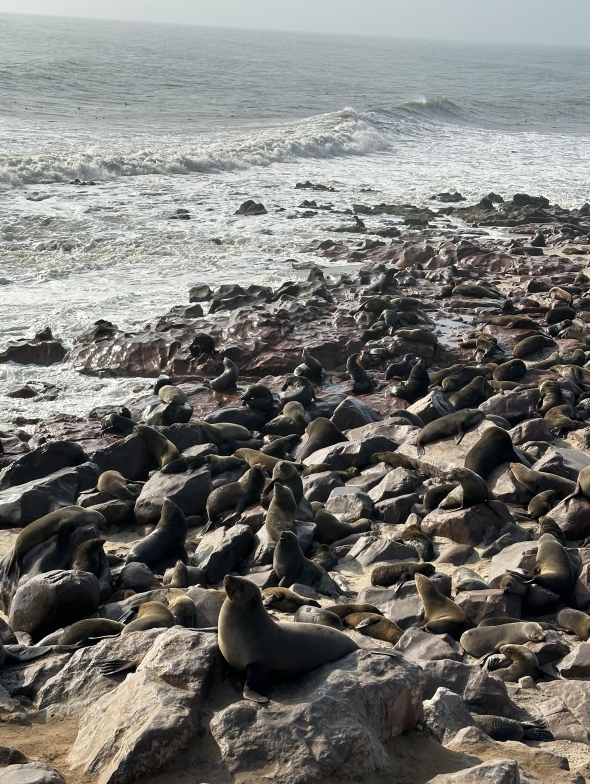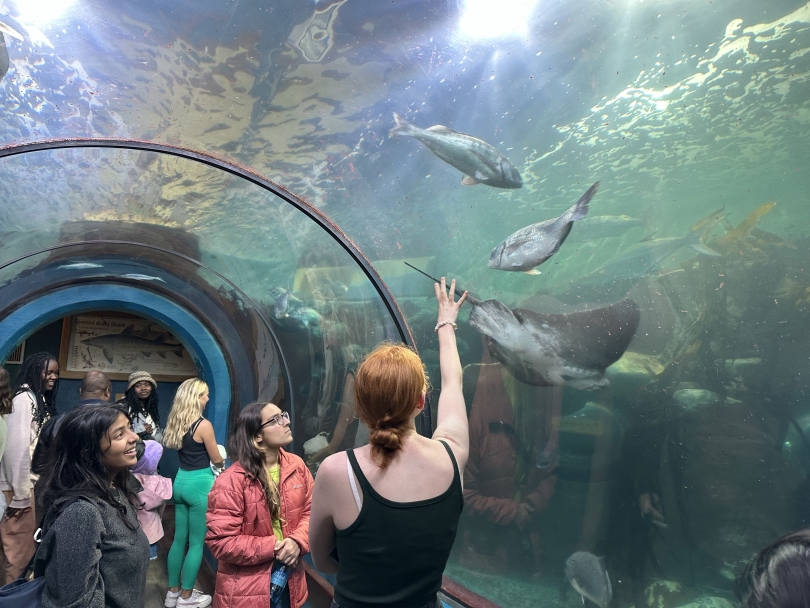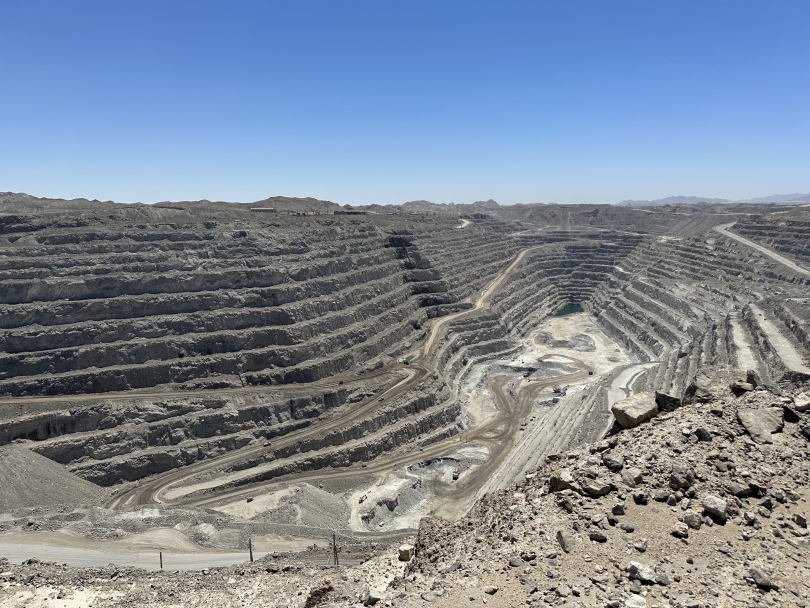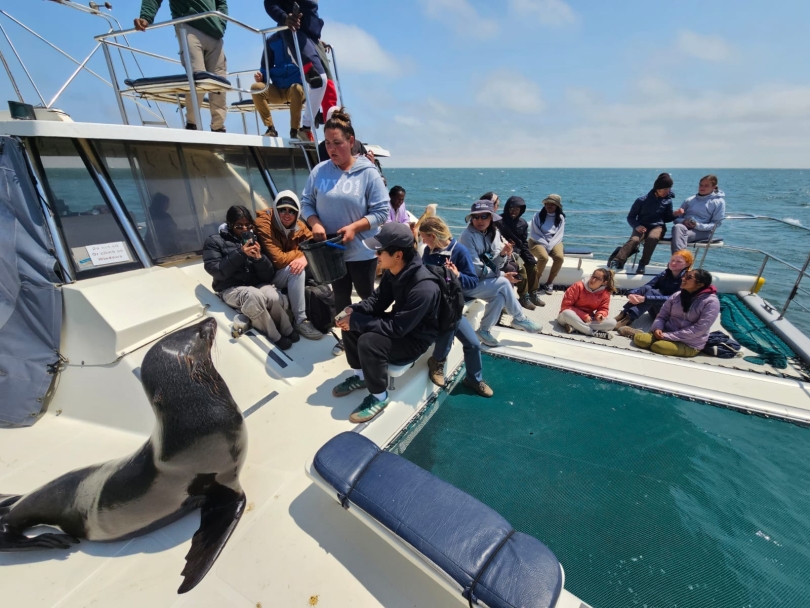
Dartmouth's Environmental Studies Foreign Study Program: Part 2
As our blue overland bus rumbled along the desert roads of Namibia on the southwest coast of Africa, the cool breeze that swept through the open windows signaled that we were close to the ocean. Eight hours of travel later, we were finally nearing Swakopmund, a coastal city where the desert sands meet the Atlantic Ocean. This marked the beginning of the second phase of the ENVS Foreign Study Program (FSP), led by Professor D.G. Webster, focusing on the social and political aspects of development and conservation in Southern Africa.
Instead of camping in tents, as we did throughout the first course, we stayed in a bed and breakfast (B&B) throughout the entirety of ENVS 42. This course emphasized shifting from a passive to an active learner. We debated seal culling and marine phosphate mining with students at the University of Namibia's Sam Nujoma Marine and Coastal Resources Research Centre. We engaged in conversations with an expert on green hydrogen while learning about the promotion of and investment in renewable energy around Namibia. We also had the chance to meet and ask questions from senior officials in Namibia's Ministry of Fisheries and Marine Resources on how they sustainably manage native stocks.
Some of the coolest moments included visiting Cape Cross (one of the world's largest Cape fur seal colonies), touring a longline and trawling fishing vessel, and trying fresh oysters straight out of the saltwater at a local aquaculture farm. I also loved spending an afternoon at the National Marine Aquarium (home to very different fish than those I encountered when I interned at Mystic Aquarium in Connecticut last summer through the Yale Conservation Scholars program).




In place of tests or quizzes, our class performance was primarily assessed through three essays, where we used Professor Webster's Action Cycle/Structural Context (AC/SC) conceptual framework to explore the management and governance histories of environmental issues. I chose to focus on Namibia's orange roughy fishery, marine diamond mining, and charcoal production. Professor Webster was always available during morning breakfasts or afternoon office hours at the B&B to discuss paper ideas, which I found very helpful in my growth as an Environmental Studies scholar and writer.
The three weeks flew by in the blink of an eye! As we bid a temporary farewell to Swakopmund, we carried a deeper understanding of environmental policy and a profound appreciation for the delicate balance between human development and coastal conservation. Stay tuned for my final post in this 3-part series about the final leg of our FSP journey: ENVS 84 (Seminar on Environmental Issues of Southern Africa).















